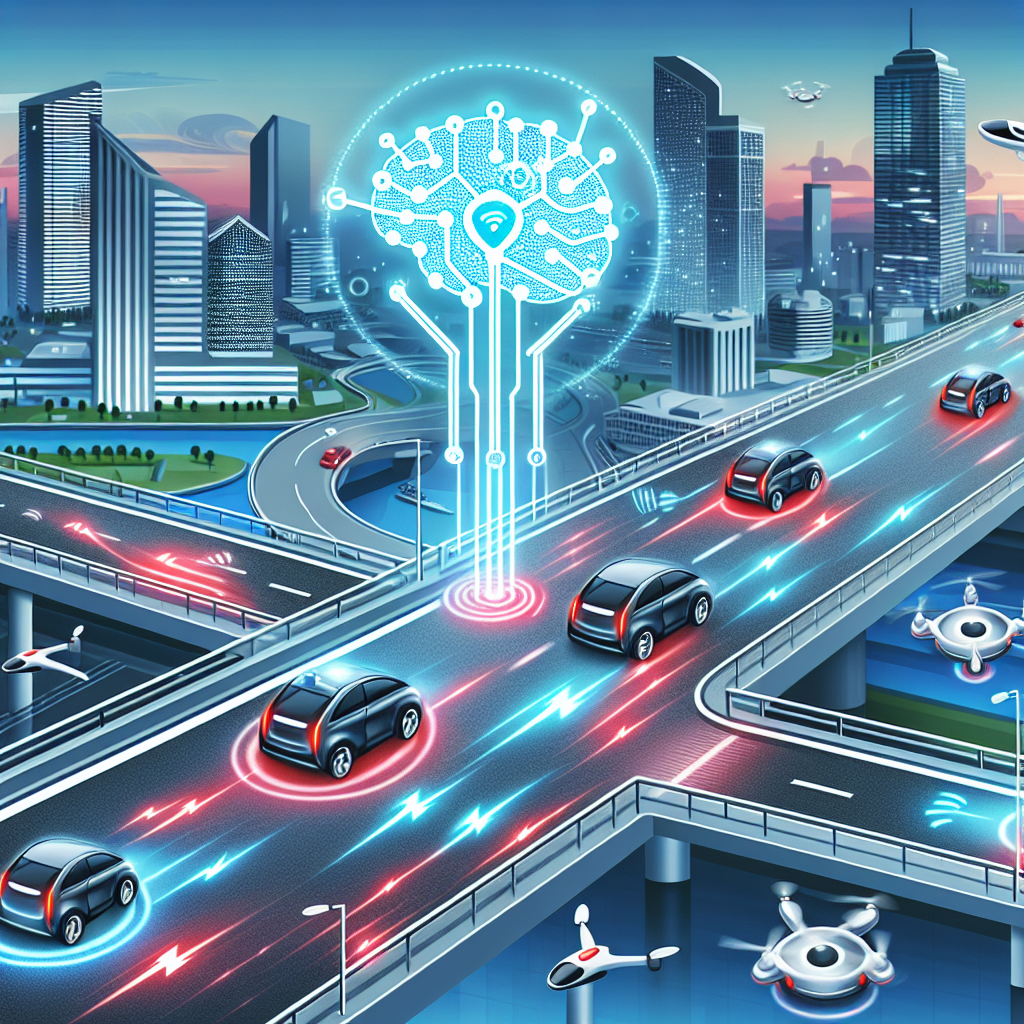Understanding AI’s Impact on Modern Traffic Management
In today’s rapidly growing urban environments, traffic management has become increasingly complex. Artificial Intelligence (AI) has emerged as a game-changing technology in addressing these challenges, offering innovative solutions to improve traffic flow, reduce congestion, and enhance overall urban mobility.
Key Applications of AI in Traffic Management
1. Real-time Traffic Monitoring and Analysis
AI-powered systems utilize advanced sensors, cameras, and data collection methods to monitor traffic patterns in real-time. These systems can:
- Process vast amounts of traffic data instantly
- Identify traffic patterns and anomalies
- Detect incidents and accidents promptly
- Monitor vehicle density and flow rates
2. Intelligent Traffic Signal Control
Smart traffic signals equipped with AI algorithms can dynamically adjust signal timing based on current traffic conditions. This adaptive approach:
- Reduces wait times at intersections
- Optimizes traffic flow during peak hours
- Minimizes unnecessary stops and delays
- Prioritizes emergency vehicles when needed
3. Predictive Analytics for Traffic Management
AI systems can analyze historical data to predict future traffic patterns and potential issues:
- Forecast peak traffic periods
- Anticipate congestion points
- Plan for special events and weather conditions
- Optimize route planning and diversions
Advanced Features of AI Traffic Management Systems
Machine Learning Algorithms
Modern traffic management systems employ sophisticated machine learning algorithms that:
- Continuously learn from traffic patterns
- Adapt to changing conditions
- Improve decision-making over time
- Identify recurring problems and solutions
Integration with Smart City Infrastructure
AI traffic management systems work in conjunction with other smart city components:
- Connected vehicles and infrastructure
- Public transportation systems
- Emergency response services
- Smart parking solutions
Benefits of AI-Powered Traffic Management
Environmental Impact
The implementation of AI in traffic management contributes to environmental sustainability by:
- Reducing vehicle emissions through improved traffic flow
- Decreasing fuel consumption
- Supporting green transportation initiatives
- Minimizing idle time at traffic signals
Economic Advantages
Smart traffic management systems deliver significant economic benefits:
- Lower transportation costs
- Reduced infrastructure maintenance expenses
- Increased productivity through reduced commute times
- Enhanced urban logistics efficiency
Future Developments and Possibilities
Integration with Autonomous Vehicles
As autonomous vehicles become more prevalent, AI traffic management systems will evolve to:
- Communicate directly with self-driving cars
- Optimize traffic flow for mixed autonomous and human-driven vehicles
- Enable more efficient route planning
- Enhance safety through vehicle-to-infrastructure communication
Advanced Data Analytics
Future developments in AI traffic management will include:
- More sophisticated prediction models
- Enhanced real-time decision-making capabilities
- Better integration of multiple data sources
- Improved emergency response systems
Implementation Challenges and Solutions
Technical Challenges
Cities implementing AI traffic management systems must address:
- Infrastructure requirements and costs
- Data security and privacy concerns
- System reliability and maintenance
- Integration with existing systems
Solutions and Best Practices
Successful implementation strategies include:
- Phased deployment approaches
- Regular system updates and maintenance
- Comprehensive staff training programs
- Strong cybersecurity measures
Conclusion
AI is revolutionizing urban traffic management, offering sophisticated solutions to age-old problems of congestion and inefficiency. As technology continues to evolve, we can expect even more innovative applications that will further improve urban mobility and create smarter, more sustainable cities.
Looking Ahead
The future of AI in traffic management holds immense potential for:
- Creating more livable urban environments
- Supporting sustainable transportation solutions
- Enhancing public safety and emergency response
- Improving overall quality of life in cities

Leave a Reply